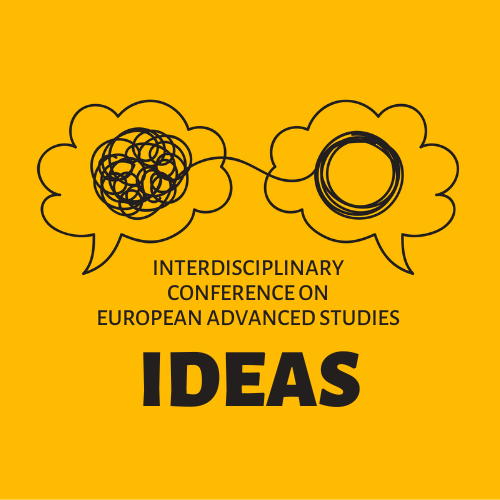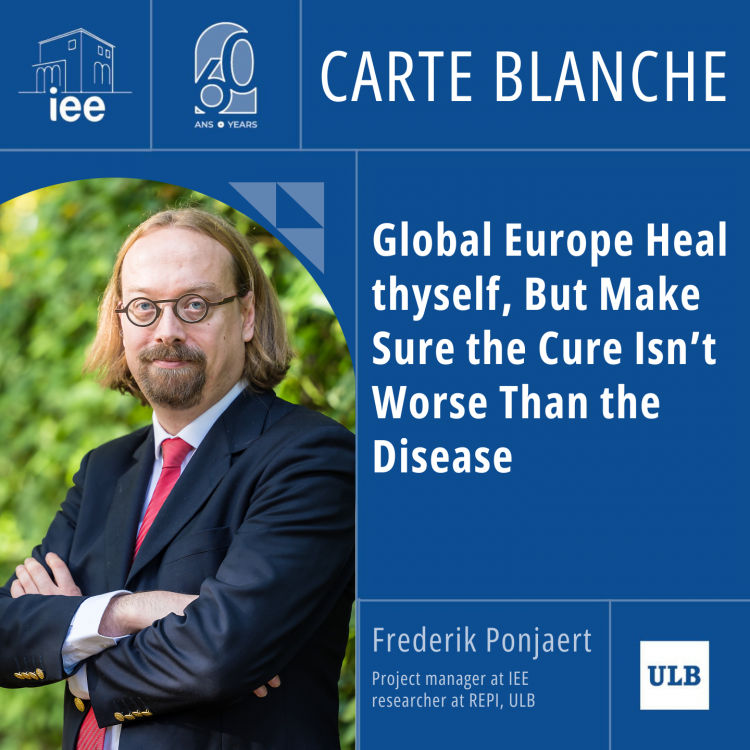The call for contributions for the Interdisciplinary conference on European Advanced Studies (IDEAS24) has been extended until next November 07th! You can register and submit your abstracts here.
Organised once again by the Institut d’études européennes of the ULB in collaboration with the Institute for European Studies of the Vrije Universiteit Brussel (IES-VUB) and the Politics and International Studies Department at the University of Warwick (PaIS-UoW), IDEAS24 takes place in the context of the Jean Monnet Centre of Excellence EUqualis.
About the IDEAS24 conference
The biennial Interdisciplinary conference on European Advanced Studies (IDEAS) is a three-day scientific event organized by the Institut d’études européennes of the Université libre de Bruxelles (IEE-ULB) in collaboration with the Institute for European Studies of the Vrije Universiteit Brussel (IES-VUB) and the Politics and International Studies Department at the University of Warwick (PaIS-UoW).
Centred on the notion of ‘Solidarities’, the first two editions of the conference were dedicated to to European and Transatlantic solidarity in May 2017 , and European solidarity in June 2019. With the start of the new Jean Monnet Centre of Excellence EUqualis centered on the question of inequalities and the EU, the third edition of the conference, in 2022, focused on ‘(Dis)Integration from an (in)equality perspective’.
The next IDEAS conference will take place in Brussels from May 15 to 17, 2024 and will be entitled ‘Inequality and the European Union. New frontiers in European Studies’. It will be organised as a contribution from the Jean Monnet Centre of Excellence EUqualis, hosted at the IEE-ULB.
Inequality has many facets which test a wide range of institutions and policies associated with the EU. Increasingly, it has emerged as one of the central and transversal concerns shared across EU institutions and national public opinions.
Debates surrounding equality and social justice within the EU raise questions such as: equality of what (e.g. outcome, opportunities, well-being, …), between whom (e.g. nationals, European citizens, non-EU nationals, individuals, …), guaranteed by what institutions (e.g. European, national, local, …), and through which means (e.g. judicial, political, fiscal, corporate, …).
Academic and political debates addressing (in)equality and (dis)integration have gained momentum following the 2008 financial crisis, the COVID-19 pandemic and the invasion of Ukraine by Russia. Increasingly, broader debates surrounding equality, non-discrimination and solidarity are homing in on the distinctive role of the European level.
The IDEAS conference is a forum to present and discuss cutting-edge research investigating inequality in relationship with European politics and policies. It brings together scholars interested in how the EU has been a driver of inequality or, on the contrary, how it has tackled it in a number of policy domains.
The call for papers for the IDEAS24 conference
The conference is structured around 10 topics which will help structure the overall focus of the conference on ‘Inequality and the European Union. New frontiers in European Studies’. Scholars interested in presenting their research dealing with inequality and the EU at the IDEAS conference under one of the 10 topics listed below are invited to submit a 250-word abstract. When submitting an abstract, applicants will have to specify under which of the 10 topics they wish to introduce their proposal. Each topic focuses on a given set of substantive challenges associated with (in)equality and EU policies.
Both the internal (intra-EU) and external (global) dimensions of said challenges fall within the scope of a topic.
The online submission system is open and will be accessible via the IEE-ULB website until November 07th (Midnight CET), the deadline for submission. Notifications of acceptance will be communicated by the end of November 2023, with draft papers expected to be submitted by April 26, 2024.
The ten topics
- Topic 1: Social Security: Old Concept, New Challenges
- Topic 2: Market and Social Citizenship in the EU
- Topic 3: The EU agenda for a “Just Transition”: Groundbreaking or Greenwashing?
- Topic 4: Mobility: a Tool for Reducing or Fueling Inequalities?
- Topic 5: The role of the EU in managing migrations
- Topic 6: European social classes: myth and reality?
- Topic 7: Digital Divide & Inequalities in the EU
- Topic 8: Gender, Inequality and Intersectionality
- Topic 9: Inequality and the EU’s fiscal policy
- Topic 10: Social Inequality in Public Health
You can now access the online submission system to participate in the IDEAS conference until November 7th, 2023.
If you have any questions, please e-mail us IDEAS.IEE@ulb.be




